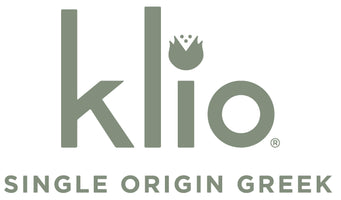GREEK MOUNTAIN TEA IN ALZHEIMERS RESEARCH

Greek herbal teas have been the subject of significant research over the years, and Greek Mountain Tea in particular. My cousin Angelos, who manages our supply chain in Greece, recently sent me a review of a study by German scientists – it was interesting so I thought I would share it with you.
We are not endorsing the study, we’re just sharing it because we think it is interesting. Clearly more research as well as clinical trials on humans are necessary to make meaninfull assessments of the efficacy of Greek Mountain Tea for AD. Our belief is that our herbal teas, which contain antioxidants and phytonutrients, should be a component of an overall healthy lifestyle with abundant physical activity (regardless of age) and a whole foods diet consisting of vegetables, fruits, healthy fats and proteins (pastured meats, etc).
The gist of the study is that transgenic AD mice which were given an extract of Greek Mountain Tea, showed a meaningful improvment in memory versus AD mice that were given Gingko extract, which is used with elderly AD patients as a cognition enhancer. And this appears to confirm invitro tests that have been preformed previously. This is a short summary of the study:
Extract preparation from Sideritis scardica enhances memorizing skills of mice in Morris water maze
B Feistel 1, B Walbroel 1, J Pahnke 2
1 Finzelberg GmbH & Co. KG, Koblenzer Str. 48 – 56, 56626 Andernach, Germany
2 University of Magdeburg, Department of Neurology, Neurodegeneration Research Lab (NRL), Leipziger Str. 44, 39120 Magdeburg, Germany
The Greek mountain tea is well known in Europe, occurring mainly in Turkey, Bulgaria and Greece. The botanical species hereof is Sideritis scardica Griseb. Over centuries it was used as relaxing tea (so called Shepard's tea or Mursalski tea). Actual in vitro investigations showed influence on reuptake-inhibition of neurological transmitters by Sideritis scardica extracts. Due to this, investigations were performed about in-vivo effects of Sideritis extracts relating to mental CNS disorders (Alzheimer's disease) and cognition.
As an established test model for cognition and spatial memory, we used the Morris water maze (MWM). Beginning with this model 30 years ago, healthy mice were tested treatment group vs. non-treatment group. Newest investigations demonstrate that a within-subject comparison approach is both valid and effective in reducing variability. Today, transgenic AD mice are available which allow testing of active substances against AD. Therefore, we introduced a Ginkgo biloba extract as positive control which is used as off-label cognition enhancer in elderly and AD patients. Following four groups (n = 6) were tested:
3 transgenic AD mice (Alzheimer's disease model in C57BL/6 background, untreated as control 1);
4 healthy background control mice (C57BL/6, untreated as control 2);
5 transgenic AD mice treated with Sideritis scardica extract;
6 transgenic AD mice treated with Ginkgo biloba extract (acc. Ph.Eur.)
Healthy control group (2) showed reduced latencies (-20%) as compared to the transgenic group (1, AD control), which confirms the suitability of (1) for our approach. The group (3) of Sideritis scardica treated AD mice showed significant lower latencies (-60% vs. control 1, and -40% vs. control 2, resp.), whereas the group of Ginkgo treated mice did not differ from any control 1 or 2. The behavioral testing results for the Sideritis group (3) correlate with the histopathological finding – reduction of total ß-Amyloid amount by 55% vs. control (1).



